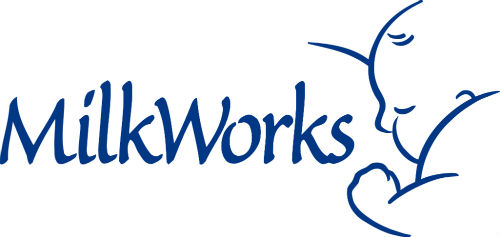Motherhood is an incredibly rewarding experience for women. It has the potential to enrich our lives, build deep connections, and help us develop multi-faceted skills. However, in our culture, motherhood can also be a time of increased social isolation and stress.
Many women come to birth and breastfeeding with a history of depression, anxiety, or PTSD, the result of escalating rates of abuse and trauma. Instead of wiping the slate clean, the stress of motherhood has the potential to aggravate many mood disorders.
If a mother is having difficulty sleeping, or is depressed, we like to identify breastfeeding as the culprit, and rather than provide extra support, we tend to “throw the baby out with the bath water.”
Nature has an amazing way of building in protective factors.
Everything involved in procreation is designed for survival of the human species. The hormone oxytocin makes us feel good when we make love, give birth and breastfeed. Hormones produced while breastfeeding calm a mother, down-regulate her stress response, and decrease her risk of depression. Yet our lack of understanding of breastfeeding and its protective nature often means we do not value its role, nor the consequences when we disrupt the protection oxytocin offers a new mother.
Postpartum depression (PPD) encompasses a wide range of mood disorders, including anxiety. PPD is a vastly unacknowledged and untreated condition among new mothers. Up to 80% of new mothers may experience short term baby blues after their baby is born. 10-30% of mothers are thought to suffer from more serious depression and anxiety in the weeks and months following birth.
A very small percentage (less than 1%) of mothers will experience postpartum psychosis. These mothers may end up hurting themselves and/or their child. No mother should have to live with the fact that she hurt her child, and no child should have to grow up without his or her mother.
Providers often shy away from assessing new mothers for PPD, not knowing where to send a mother for help, whether she has the financial means to access help, nor the time to make sure she seeks help. It’s almost as though we are frightened to acknowledge there may be an issue. Yet when we don’t, we may only make it worse.
From a new mother’s perspective, it can be overwhelming. If you have never been depressed before, you may find yourself asking, “What’s wrong?” “Does this mean I am a bad mom?” “What will my friends and family say if I tell someone how I feel?”
PPD is disabling for moms and babies. Research shows that depressed moms show less responsiveness and have fewer interactions with their babies. They also have fewer protective mechanisms. Depressed mothers are less likely to use a car seat and they don’t cover electrical outlets as often. Babies of moms with PPD exhibit elevated heart rates and cortisol levels, they do less well in school and have higher cortisol levels in response to stressors, and they grow up to be more depressed as adults.
Prosper Lincoln recently conducted an early childhood systems of care assessment. Screening for maternal depression was identified as a high priority on the part of community members and parents. Luckily, there are treatments and solutions for PPD. We know that cognitive therapy (counseling), group support, and medications may all be part of a treatment modality for mothers. But treatment is only effective if we are willing to talk to moms and find out how they are feeling and what they are thinking and connect them to effective resources.
MilkWorks knows that we need to step up to the plate. We have a perfect opportunity to assess moms, help them seek treatment, and follow moms to make sure they are getting better. In the process, we can provide data to our community. We started by educating our staff. Now we are developing a plan to put what we know into action. Our next step is to obtain funding in order to create a better safety net for new mothers and their babies.
There is a lovely Disney movie, Born in China, that is playing in theaters right now. Filmed in remote China, the animal mothers spend their days frolicking, cuddling and sleeping with their babies, preparing them to stand on their own two feet and take care of themselves. Just like us, the oxytocin these mammalian mothers release while breastfeeding their babies makes them happy and loving moms. Our mothers deserve the same. We want our mothers to spend their time holding, singing and reading to their babies, making sure their babies feel safe and secure, ready to conquer the world.
No mother should feel immobilized by depression or anxiety. We appreciate the focus of our community and its goal to make Lincoln the best place for early childhood care. Let’s start this journey by figuring out how to mother our most vulnerable mothers and provide them the support they need to care for their babies.
For additional information:
National Institute of Mental Health (NIMH) Postpartum Depression Facts
